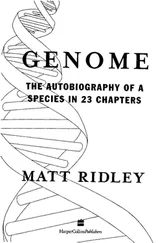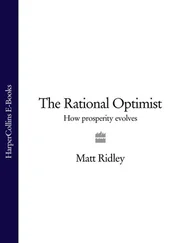The Queen - Matt Ridley
Здесь есть возможность читать онлайн «The Queen - Matt Ridley» весь текст электронной книги совершенно бесплатно (целиком полную версию без сокращений). В некоторых случаях можно слушать аудио, скачать через торрент в формате fb2 и присутствует краткое содержание. Жанр: Старинная литература, на английском языке. Описание произведения, (предисловие) а так же отзывы посетителей доступны на портале библиотеки ЛибКат.
- Название:Matt Ridley
- Автор:
- Жанр:
- Год:неизвестен
- ISBN:нет данных
- Рейтинг книги:4 / 5. Голосов: 1
-
Избранное:Добавить в избранное
- Отзывы:
-
Ваша оценка:
- 80
- 1
- 2
- 3
- 4
- 5
Matt Ridley: краткое содержание, описание и аннотация
Предлагаем к чтению аннотацию, описание, краткое содержание или предисловие (зависит от того, что написал сам автор книги «Matt Ridley»). Если вы не нашли необходимую информацию о книге — напишите в комментариях, мы постараемся отыскать её.
Matt Ridley — читать онлайн бесплатно полную книгу (весь текст) целиком
Ниже представлен текст книги, разбитый по страницам. Система сохранения места последней прочитанной страницы, позволяет с удобством читать онлайн бесплатно книгу «Matt Ridley», без необходимости каждый раз заново искать на чём Вы остановились. Поставьте закладку, и сможете в любой момент перейти на страницу, на которой закончили чтение.
Интервал:
Закладка:
THE USES OF BEAUTY
:::283 :::
Freud 's rival in this field was Edward Westermarck; in 1891 he suggested that men do not mate with their mothers and sisters not because of social rules but because they are simply not turned on by those they were reared with: Westermarck 's idea was simple: Men and women cannot recognize their relatives as relatives, so they have no way of preventing inbreeding as such. (Curiously, quail are different; they can recognize their brothers and sisters even when reared apart.) But they can use a simple psychological rule that works ninety-nine times out of a hundred to avert an incestuous match. They can avoid mating with those whom they knew very well during childhood. Sexual aversion to one 's closest relatives is thus achieved. True, this will not avert marriage between cousins, but then there is nothing much wrong with marriage between cousins: The chance of a recessive deleterious gene emerging from such a match is small, and the advantages of genetic alliance to preserve complexes of genes that are adapted to work with one another probably outweigh it: (Quail prefer to mate with first cousins rather than with strangers.) Westermarck did not know that, of course, but it strengthens his argument, for it suggests that the only incestuous relations a human being should avoid are the ones between brother and sister, and parent and child.'
Westermarck 's theory leads to several simple predictions: Stepsiblings would generally not be found to marry unless they were brought up apart. Very close childhood friends would also generally not be found to marry: Here the best evidence comes from two sources: Israeli kibbutzim and an old Chinese marriage custom. In kibbutzim, children are reared in creches with unrelated companions.
Lifelong friendships are formed, but marriages between fellow kibbutz children are very rare. In Taiwan some families practice "shim-pua marriage" in which an infant daughter is brought up by the family of the man she will marry. She is therefore effectively married to her stepbrother. Such marriages are often infertile, largely because the two partners find each other sexually unattractive: Conversely, two siblings reared apart are surprisingly likely to fall in love with each other if they meet at the right age.4
All of this adds up to a picture of sexual inhibition between people who saw a great deal of each other during childhood; frater-
::: 284 :::
Tht Red Quern
nal incest, as Westermarck suggested, is therefore prevented by this instinctive aversion that siblings have for each other: But Westermarck 's theory would also predict that if incest does occur, it will prove to be between parent and child, and specifically between father and daughter, because a father is past the age at which familiarity breeds aversion and because men usually initiate sex. That, of course, is the most common form of incest.'
This contradicts Freud 's idea that incest taboos are there because people need to be told not to commit incest. Indeed, Freud ' s theory requires that evolutionary pressures have not just failed to generate some mechanism to avoid incest but have actually encouraged maladaptive incestuous instincts, which the taboos repress. Freudians have often criticized the Westermarck theory on the grounds that it would obviate the need for incest taboos at all.
But in fact incest taboos that outlaw marriage within the nuclear family are rare. The taboos that Freud observed are nearly always concerned with outlawing marriage between cousins: In most societies there is no need to outlaw incest within the nuclear family because there is little risk of its happening:'
So why are the taboos there? Claude Levi-Strauss invented a different theory called the "alliance theory, " which stressed the importance of using women as bargaining chips between tribes and therefore not letting them marry within the tribe, but since no two anthropologists can agree on exactly what Levi-Strauss meant, it is hard to test his idea. Nancy Thornhill of the University of New Mexico has argued that the so-called incest taboos are actually rules about marriage customs invented by powerful men CO prevent rivals from accumulating wealth by marrying their own cousins.
They are not about incest at all but about power:'
TEACHING OLD CHAFFINCHES NEW TRICKS
The incest story neatly demonstrates the interdependence of nature and nurture. The incest avoidance mechanism is socially induced: You become sexually averse to your siblings during your childhood: THE USES OF BEAUTY
::: 285 :::
In that sense there is nothing genetic about it: And yet it is genetic, for it is not taught: It just develops within the brain. The instinct not to mate with childhood companions is nature, but the features by which you recognize them are nurture.
It is critical to Westermarck ' s argument that this aversion to mating with familiar people wear off for new acquaintances in later life: Otherwise, people would become averse to mating with their spouses within weeks of marrying them, which they plainly do not. Biologically, this is not hard to arrange: One of the most striking features of animal brains is the "critical period " of youth during which something can be learned and after which the learning is not erased or superseded: Konrad Lorenz discovered that chicks and goslings "imprint " on the first moving thing they meet, which is usually their mother and rarely an Austrian zoologist, and thereafter they prefer to follow that object: But chicks a few hours old will not imprint, nor will those two days old: They are at their most sensitive to imprinting at thirteen to sixteen hours old. During that sensitive period they will fix their preferred image of a parent in their heads:
The same is true of a chaffinch learning to sing: Unless it hears another chaffinch, it never learns the species 's typical song. If it hears no chaffinch until it is fully grown, it never learns the right song but produces a feeble half-song. Nor will it learn the song if it hears another chaffinch only when it is a few days old. It must hear a chaffinch during a critical period in between—from two weeks to two months of age—and then it will learn to sing correct-ly; after that period it never modifies its song by imitation:'
It is not hard to find examples of critical-period learning in people: Few people change their accents after the age of about twenty-five, even if they move from, say, the United States to Britain: But if they move at ten or fifteen, they quickly adopt a British accent: They are just like white-crowned sparrows, which sing with the dialect of the place where they lived at two months old:9 Likewise, children are remarkably good at picking up foreign languages just by exposure to them, whereas adults must laborious-ly learn them: We are not chicks or chaffinches, but we still have
::: 286 :::
The Red Queen
critical periods during which we acquire preferences and habits that are fairly hard to change.
This concept of the critical period is presumably what lies behind the Westermarck incest-avoiding instinct: We become sexually indifferent to those with whom we were reared during a critical period. Nobody is certain exactly what constitutes the critical period, but it is a plausible guess that it lasts from, say, eight to fourteen, the years before puberty. Common sense dictates that sexual orientation must be decided in such a fashion: A genetic predisposition meets examples during a critical period. Recall the fate of the baby chaffinch. For six weeks it is sensitive to learning chaffinch song. But during those six weeks of sensitivity, it hears all sorts of things: cars, telephones, lawn mowers, thunder, crows, dogs, sparrows, starlings. Yet it only imitates the song of chaffinches. It has a predilection to learn chaffinch song. (If it were a thrush or a starling, it could indeed imitate some of the other things. One bird in Britain learned the call of a telephone, causing havoc among backyard sunbathers.)'° This is often the case with learning: Ever since the work of Nikolaas Tinbergen and Peter Marler in the 1960s, it has been well known that animals do not learn anything and everything; they learn what their brains " want" to learn: Men are instinctively attracted to women thanks to the interaction of their genes and hormones, but that tendency is much influenced in a critical period by role models, peer pressure, and free will: There is learning, but there are predispositions.
Читать дальшеИнтервал:
Закладка:
Похожие книги на «Matt Ridley»
Представляем Вашему вниманию похожие книги на «Matt Ridley» списком для выбора. Мы отобрали схожую по названию и смыслу литературу в надежде предоставить читателям больше вариантов отыскать новые, интересные, ещё непрочитанные произведения.
Обсуждение, отзывы о книге «Matt Ridley» и просто собственные мнения читателей. Оставьте ваши комментарии, напишите, что Вы думаете о произведении, его смысле или главных героях. Укажите что конкретно понравилось, а что нет, и почему Вы так считаете.












